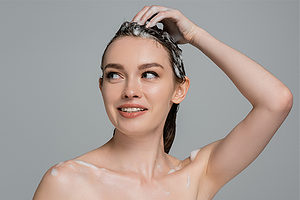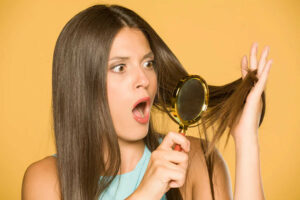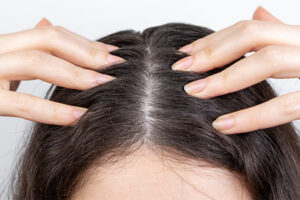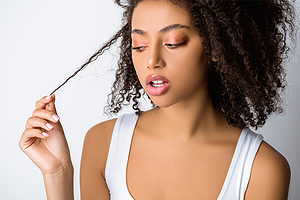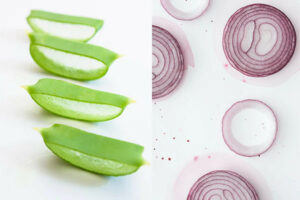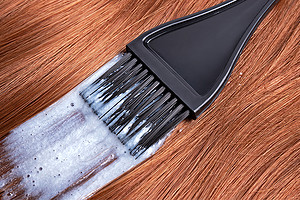A well-groomed hair is essential for looking impressive as it adds to your personality. But the answer to how many times to brush the hair is still shrouded in a lot of doubt.
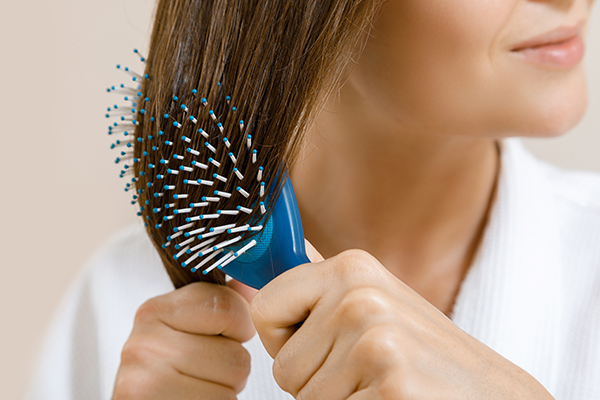
Your hair is fragile and needs to be combed with care because excessive brushing can lead to hair fall and breakage.
However, with the right tools and guidance, you can master the art of brushing your hair well and keep it looking great.
Article Contents
How Often Should You Comb Your Hair According to Your Hair Type?
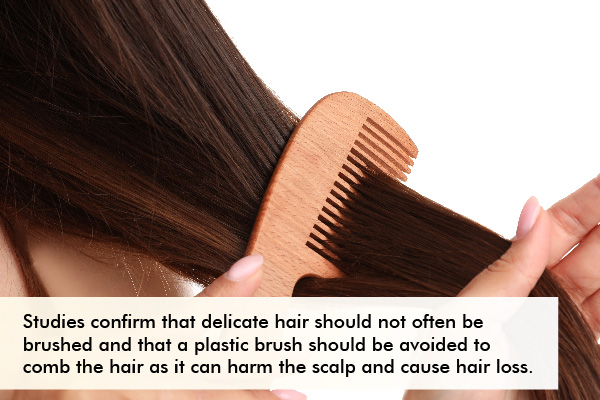
Studies confirm that delicate hair should not be brushed often and that a plastic brush should be avoided to comb the hair as it can harm the scalp and cause hair loss. The hair should be brushed gently as the excessive friction during rough combing can cause split ends and breakage.
Studies have shown that colored or chemically treated hair should be handled with care, and extra caution should be applied when brushing it. You should not comb this type of hair more than twice a day. Fine and weak hair also needs to be combed gently and should be combed just once or twice a day. (1)(2)
If you have curly or textured hair, comb your hair before washing it to detangle it. But if you want to retain your natural coily hair, don’t brush your hair too often to maintain the hair’s texture. (3)
Does Combing Help in Hair Growth?
A lot of studies are being done on the influence of hair combing on hair growth and loss.
There is a view that brushing generates traction on the hair shaft and follicles, resulting in hair loss and alopecia. However, there is also another view that brushing the hair may promote hair growth as it may influence the growth factors or receptors in the scalp and hair follicles. Thus, more research is needed on this topic. (1)
Benefits of Hair Combing
The benefits of hair combing are as follows:
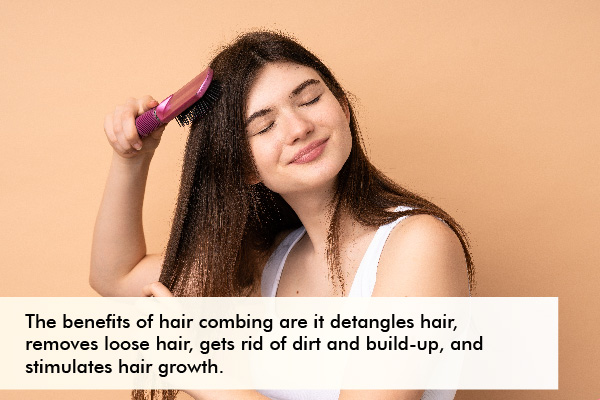
1. Detangles hair
Combing the hair is necessary to detangle it and add shine and health to the strands.
Your scalp produces sebum, a natural substance that lubricates it and the hair. When you comb the hair, this natural oil gets distributed throughout your hair, resulting in increased shine.
2. Removes loose hair
Some strands get loose and break when you sleep, so combing the hair in the morning and the night before sleeping is necessary to eliminate all the loose hair.
In a study conducted on female-pattern hair loss, it was found that people with healthy hair lose about 50–100 hair strands daily, which are caught in the comb or brush. (4)
Therefore, brushing the hair twice a day is an excellent way to remove loose and dead hair.
3. Gets rid of dirt and buildup
Brushing the hair is a great way to get rid of the dirt, debris, natural oils, and product buildup accumulated on the scalp. These elements are excellent breeding grounds for bacteria and fungi, which can result in hair loss and breakage in the long run.
Hence, you should comb your hair regularly to get rid of all the dirt and grime that are deposited on your hair during the day.
4. Stimulates hair growth
While brushing your hair, the bristles of the comb run through your scalp and hair and stimulate the hair follicles to grow hair. (1)
How to Correctly Comb Your Hair
You can correctly comb your hair by following these steps:
- Dry your hair completely by towel-drying it or using a hair dryer at the lowest temperature possible.
- Use a clean wide-toothed comb to brush your hair from the hair tips.
- After removing the tangles from the hair tips, work your way upward, slowly detangling and combing out the hair till you reach the hair roots on top of your head. A broad-bristle brush is recommended to spread the oil on the scalp and down through the hair length.
A 2009 study found that the hair should not be overcombed and should be brushed very gently to avoid friction among the hair strands, which results in split ends and hair fall. (1)
Tips for Combing Your Hair
- You should brush your hair only when you need to style it. Despite popular thinking, hair does not need 100 strokes a day. (5)
- Do not use combs with sharp hair bristles as these may damage your scalp and lead to hair loss.
- Avoid brushing your hair aggressively, as it can lead to scalp damage and hair breakage. (6)
- Do not style your hair in tight hairstyles that involve pulling and tugging at the hair as these can weaken the hair at the roots and also result in split ends. (7)
- It would be best if you waited till your hair is dry to comb it. When wet, your hair is at its weakest, and combing it can result in hair breakage. (6)
How Much Hair Fall Is Normal When Brushing It?
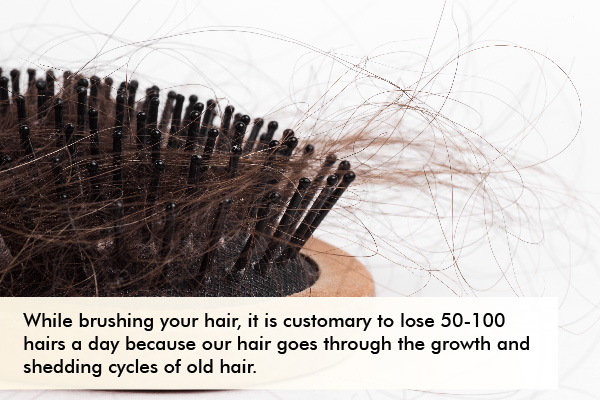
When brushing your hair, it is normal to lose 50–100 hairs a day because the hair goes through the growth and shedding cycles of old hair.
It is also possible to lose more hair than usual due to excessive force while combing the hair, resulting in the hair getting entangled in the comb and breaking off. But this reason does not seem to be the main reason for hair fall, according to some studies. (8)
However, if you find that your hair is falling in clumps regularly and beyond 100 hairs a day, then it could be due to some underlying medical condition that needs to be diagnosed and addressed by a medical doctor. (5)
General Queries Related to Hair Combing
What happens to my hair if I don’t comb it?
Not combing your hair will make it dry, brittle, and frizzy. Your hair will get matted and eventually will fall due to gross neglect.
Combing your hair helps to get rid of dirt, chemicals, and buildup at the roots and scalp and also helps to open up the pores.
How should I brush my hair?
You should always comb your hair gently and with a wide-toothed brush without poky ends so it is gentle on your scalp and hair. Clean your brushes regularly to eliminate trapped dirt, grime, and bacteria.
If you have long hair, start brushing your hair from the bottom upward to eliminate all tangles. Part your hair in different sections and comb it upward toward the ends. (3)
Does brushing the hair improve blood circulation to the scalp?
Brushing the hair has many benefits, including increasing blood circulation to the scalp. Not only does combing help get rid of tangles in your hair, but it also stimulates hair growth.
You can give yourself a head massage using your fingers for 5–10 minutes for better blood circulation as it calms the mind and stimulates the hair follicles to produce healthy and strong hair.
Final Word
Comb your hair at least twice a day, once in the morning and once at night, to eliminate loose hair and stimulate hair growth.
Excessive combing can lead to hair fall and scalp disorders. Hence, comb your hair gently to avoid hair loss and breakage. Follow the tips given above to have beautiful and glossy hair.
References
- The effect of brushing on hair loss in women – researchgate. https://www.researchgate.net/publication/23480317/.
- Martin AM, Sugathan P. Localised acquired trichorrhexis nodosa of the scalp hair induced by a specific comb and combing habit – a report of three cases. International journal of trichology. https://www.ncbi.nlm.nih.gov/pmc/articles/PMC3129123/. Published January 2011.
- Gavazzoni Dias MFR. Hair cosmetics: An overview. International journal of trichology. https://www.ncbi.nlm.nih.gov/pmc/articles/PMC4387693/. Published 2015.
- Martínez-Velasco MA, Vázquez-Herrera NE, Maddy AJ, Asz-Sigall D, Tosti A. The hair shedding visual scale: A quick tool to assess hair loss in women. Dermatology and therapy. https://www.ncbi.nlm.nih.gov/pmc/articles/PMC5336434/. Published March 2017.
- How to stop damaging your hair. American Academy of Dermatology. https://www.aad.org/public/diseases/hair-loss/insider/stop-damage.
- Sinclair RD. Healthy hair: What is it? Journal of Investigative Dermatology Symposium Proceedings. https://www.sciencedirect.com/science/article/pii/S0022202X15526559. Published December 16, 2015.
- Too much brushing hair loss – Chicago, il – causes of balding/thinning. Chicago Hair Institute. https://www.chicagohairinstitute.com/blog/2019/05/18/can-brushing-too-often-cause-197963.
- C; KYKR. Hair breakage by combing and brushing–a comment on: T. A. Evans and K. Park, a statistical analysis of hair breakage. II. repeated grooming experiments, J. Cosmet. sci., 41, 439-456 (2010). Journal of cosmetic science. https://pubmed.ncbi.nlm.nih.gov/22682401/.


